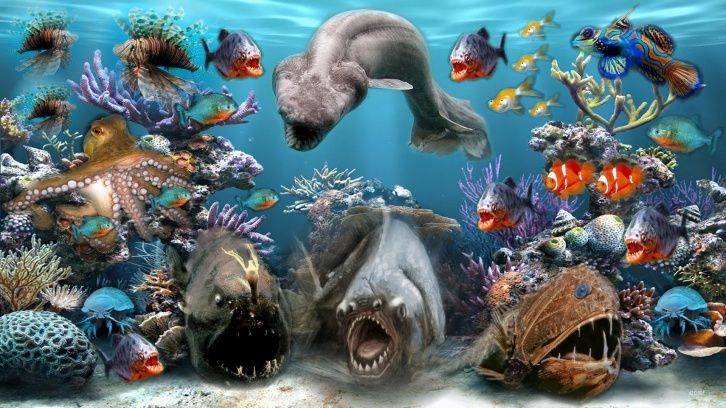
FAQ About Ocean Life

How do marine animals adapt to life in the deep sea?
Marine animals that inhabit the deep sea face extreme conditions, such as low temperatures, high pressure, darkness, and limited food availability. To survive in this challenging environment, deep-sea animals have evolved a range of adaptations.
Bioluminescence is a common adaptation among deep-sea animals. Many species have developed the ability to produce their own light using specialized organs called photophores. Bioluminescence serves various purposes, including communication, attracting prey, deterring predators, and camouflage.
Deep-sea animals must withstand the high water pressure of the deep ocean. They have adaptations such as flexible bodies, compressible internal structures, and reduced gas-filled spaces that allow them to withstand the pressure without being crushed.
The deep-sea environment is characterized by low temperatures and limited food resources. To cope with these conditions, many deep-sea animals have slow metabolisms. They have adapted to survive on meager food supplies and can live for extended periods without feeding.
Deep-sea animals have evolved various feeding strategies to capture prey in the deep-sea environment. Some possess large mouths and expandable stomachs to consume prey larger than themselves. Others have elongated jaws or teeth adapted for capturing prey in the dark.
Deep-sea animals often have adaptations related to reproduction and life history. Some species have developed bioluminescent displays or elaborate mating behaviors to attract mates in the dark. Others have long reproductive cycles and produce a large number of offspring to increase their chances of survival in the challenging environment.
These are just a few examples of the adaptations that deep-sea animals have evolved to thrive in the extreme conditions of the deep ocean. The deep sea remains largely unexplored, and ongoing research continues to uncover new and fascinating adaptations in the remarkable creatures that call this environment home.
